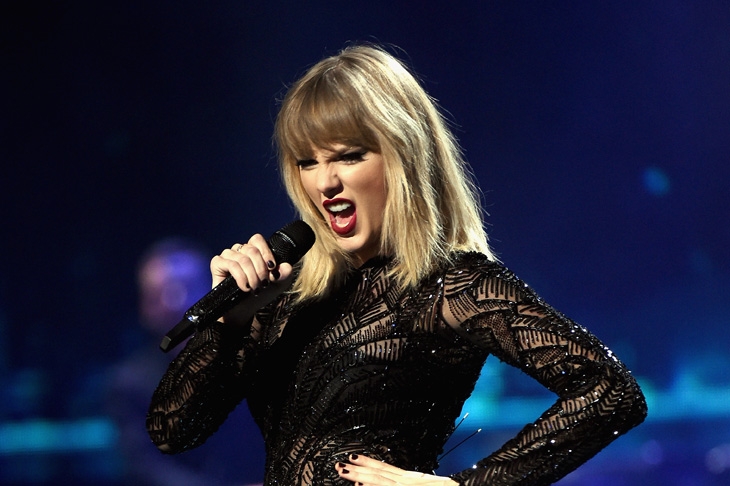This has not been an appalling year for pop music — it was better than 1984, for example, and 1961. Simply put, it was a year in search of a direction, one foot planted in 1980s cheese or bombast, the other still dipping its toe into the now mind-sapping boredom of EDM, with the occasional nod to a middle-class version of hip hop, a once garish and interesting subculture now utterly subsumed by the mainstream. And so everything rather swathed in both blandness and uncertainty — a year, then, without edge.
Odd, really, considering the political climate. The biggest-selling albums of the year so far have come from the ubiquitous and unspeakable Ed Sheeran, Drake, Kendrick Lamar: folk, rap and hip hop assuaged into a kind of saccharine pap for the sake of mass acceptance. Bigger than all of them, already, is Taylor Swift’s genuinely awful album Reputation, in which she dissected her reputation as a serial shagger and spooky control freak. It’s the biggest-selling album of the year — maybe of all time, who knows: guileless R&B schlock masterminded by the Swedish auteur Max Martin, who is still able to storm the charts at will. But not everything that sold well was dross. Rag’n’Bone Man’s Human is right up there in the charts. This is rap, but not as you know it, Captain. Rory Charles Graham is not straight outta Compton or the Bronx; he’s a white chap straight outta Uckfield, East Sussex. His big influence is Muddy Waters and the Delta blues — that would be the delta of the River Uck, then. As it meanders gently towards the Ouse. But a good album for all that.
Elsewhere, the genre crunching worked and was even mesmerising, as on St Vincent’s Masseduction, a clever, modernist take on that ubiquitous staple, soft rock, and probably my album of the year (in that I don’t actually hate it yet). Björk was reliably doolally with Utopia — glacial is the word one tends to reach for. But at least there was invention at work and a laudable refusal to abide by convention. Of the indie bands — a very bad year for that genre — Brand New and The National sounded as if they knew what they were doing, and even here there was nothing to frighten the horses, just musical pleasantries oh so competently performed. PWR BTTM temporarily thrilled with a laudably frenetic second album, Pageant.
Still, we could always enjoy one or two boxed sets and reissues. Britain’s finest songwriter of the past 30 years, Luke Haines, gave us his collection of solo stuff — Luke Haines is Alive and Well and Living in Buenos Aires. It is hilarious and poignant by turns — listen to ‘How To Hate The Working Classes’ or the arch ‘Smash The System’ and see what the music-buying public have missed out on. Haines tells me people think he’s serious when he performs ‘Smash The System’ — there is not much room for irony and humour in modern music. From a generation before — and probably an influence on Haines — came Peter Perrett’s solo album, his second in 20 years, How The West Was Won, and one forgave Perrett the Corbynista agenda because of the glory of the music and the wit of the lyrics.
What else do you need to know? Bob Dylan released a triple album stinker of jazz standards, in between winning the Nobel prize and picking it up. Oh, and they’ve re-released The Eagles’ Hotel California, just in case there’s anyone left alive who hasn’t had its pretentious, flatulent idiocies rammed down their throats already. Bring on 2018.







Comments